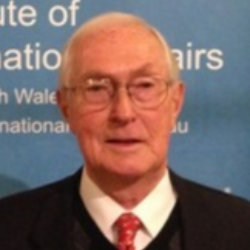ASEAN Summit a timely background for this weeks talks with China
March 18, 2024
The recent ASEAN-Australia Summit in Melbourne was widely well received. Leaders of all member countries, except Myanmar, attended. Some—President Marcos of the Philippines and Prime Minister Anwar of Malaysia—also carried out quite extensive individual programs. Speeches and comments reflected general agreement, and there was an impressive list of follow-up practical actions, many of them with a substantial Australian financial contribution.
The Leaders Vision Statement was notable for its repeated references to ASEAN centrality in the Indo-Pacific. In accordance with ASEAN practice it did not name countries regarded as causing problems, but it was clear as to what some of these problems were and what kinds of behaviour Leaders want to promote. The Statement says, for example, that We seek a region where disputes are settled peacefully in accordance with the universally recognised principles of international law, including the 1982 United Nations Convention on the Law of the Sea (UNCLOS). In his press conference on 6 March Prime Minister Albanese said that the position was put very clearly by, you wont be surprised, by President Marcos but others as well, the South China Sea is an important issue. And there is a general recognition that we need to make sure that activity in the South China Sea alleviates any tension, doesnt add to it.
This weeks talks between the Chinese and Australian Foreign Ministers will be the 7th Session of the China-Australia Foreign and Strategic dialogue. Although they will take place in the context of a general upswing in the two countries foreign and trade relations, Foreign Minister Penny Wong will probably be quite glad to have the foregoing on the record as an indication of the ASEAN position. The talks are expected to cover conflict prevention and regional security, as well as more strictly bilateral matters.
In a statement issued last week Wong repeated the Governments mantra in regard to China that Australias approach is consistent; we seek to cooperate with China where we can, disagree where we must and engage in our national interest. Its Australias view that a stable bilateral relationship would enable both countries to pursue respective national interests, if we navigate our differences wisely.
This emphasis on stability is interesting, and was developed by Minister Wong in a long interview with James Curran under the auspices of The Financial Review last week. She does not see the clash that others see between her policy stress on a multi-polar region with no single dominant power, and our defence acquisition program focussed on acquiring capabilities which many see as designed with a war with China in mind. In her very interesting discussion with Curran she put ensuring stability and peace as our prime goals for our region, and for that we need both deterrence and assurance. That involves working with ASEAN, and ensuring that we, as a group, try and ensure we have the architecture—diplomatic and military—to prevent escalation, to avert conflict.
It will be interesting to see whether any echoes of the ASEAN discussion, and of Minister Wongs own thinking, emerge from this weeks bilateral talks.

